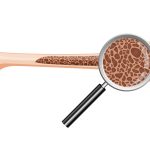Let’s understand more about acid reflux and how to manage the symptoms
Most of us have experienced a bout of indigestion or acid reflux at some point. Maybe it was after a greasy meal or one too many alcoholic beverages. It certainly wasn’t the most pleasant feeling, right?
Quick Read:
- Common triggers of acid reflux include fatty foods, spicy meals, caffeine, alcohol, smoking, and eating too close to bedtime.
- Some people find that laying down after a meal makes acid reflux feel worse.
- Acid reflux isn’t comfortable, but there are remedies that can offer some relief.
What is acid reflux?
Acid reflux and heartburn are related. Acid reflux occurs when acidic stomach contents go back up into your oesophagus. The oesophagus is the tube that connects your stomach to your mouth.
Heartburn affects many people, and most frequently occurs from overeating, spicy foods and/or stress. This can cause that uncomfortable burning feeling in your chest, which slowly starts to creep up into your neck and throat. Also, good to know – heartburn has nothing to do with the heart.
Symptoms of acid reflux
- Burning feeling in your chest
- Sour, acidic taste at the back of your throat
- Nausea
- Coughing
- Chest pain
- Problem swallowing
- Vomiting
- Sore throat and hoarseness
You may notice the pain feels worse immediately after eating, when you lay down, or bend over. Some people feel the food sitting in their throat/upper chest and it’s difficult to swallow.

What causes acid reflux?
In some cases, a hiatus hernia may be the problem. This is a condition when your stomach bulges up into your chest through an opening in your diaphragm.
Typically though, acid reflux happens when the lower oesophageal sphincter, which is the valve between your oesophagus and stomach, doesn’t close properly or relaxes at the wrong time. When this happens, the stomach acid churns back up, giving you that familiar burning sensation. When this happens regularly, it could be a sign of gastroesophageal reflux disease (GERD).
The impact of the acid repeatedly entering the oesophagus can begin to irritate your stomach lining, and cause discomfort, bloating, and a sour taste in your mouth.
Other typical triggers are alcohol, coffee, chocolate, tomatoes, fried or spicy meals, and dairy products. Your lifestyle also plays a role. Being overweight, constantly under stress, and experiencing anxiety may also induce acid reflux.
Even some anti-inflammatory painkillers can make reflux worse. It’s important to figure out your triggers and find remedies to help reduce symptoms and protect your digestive health over time.
Help at hand
There are several over-the-counter remedies for heartburn and acid reflux. These usually include quick relief in the form of antacids or prescription medication. These treatments help to stop the valve between your stomach and food pipe from relaxing too much and letting acid flow back up.
Please don’t ignore persistent symptoms. It’s time to go to the doctor or a clinic if:
- You have acid reflux/heartburn more than twice a week for several weeks.
- You rely on heartburn medication and antacids after almost every meal.
- Reflux symptoms interfere with your sleep.
- You develop a cough.
- You have difficulty swallowing, nausea or vomiting.
- You start to lose weight unintentionally.
Make an effort to correct your posture, and sit up straight when eating. If possible, eat smaller, more frequent meals, rather than three large meals a day. Allow your food plenty of time to digest before bedtime, and quit smoking and cut back on alcohol. These lifestyle changes can go some way in helping to manage acid reflux.
Images: Freepik





















